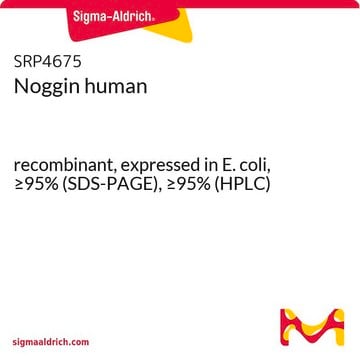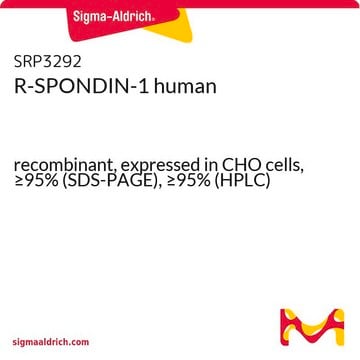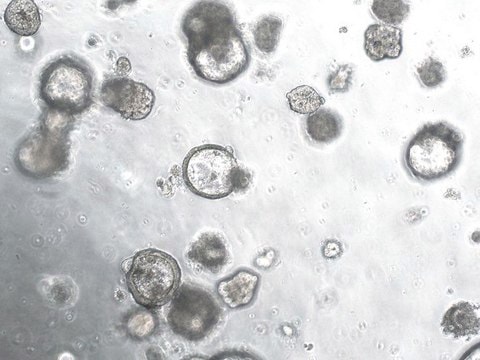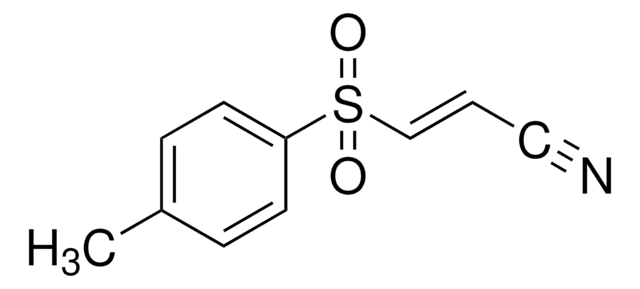N17001
Noggin human
recombinant, expressed in HEK 293 cells, suitable for cell culture
Synonym(s):
Noggin human
About This Item
Recommended Products
recombinant
expressed in HEK 293 cells
Quality Level
Assay
≥98% (SDS-PAGE)
form
lyophilized powder
potency
≤10 ng/mL ED50
mol wt
23 kDa (The protein migrates as a 25 kDa band on SDS-PAGE due to glycosylation)
technique(s)
cell culture | mammalian: suitable
storage temp.
−20°C
Looking for similar products? Visit Product Comparison Guide
General description
Biochem/physiol Actions
Sequence
Physical form
Analysis Note
The EC50 is defined as the effective concentration of growth factor that elicits a 50% decrease in alkaline phosphatase secretion in a cell based bioassay.
Storage Class Code
11 - Combustible Solids
WGK
WGK 2
Flash Point(F)
Not applicable
Flash Point(C)
Not applicable
Certificates of Analysis (COA)
Search for Certificates of Analysis (COA) by entering the products Lot/Batch Number. Lot and Batch Numbers can be found on a product’s label following the words ‘Lot’ or ‘Batch’.
Already Own This Product?
Find documentation for the products that you have recently purchased in the Document Library.
Customers Also Viewed
Our team of scientists has experience in all areas of research including Life Science, Material Science, Chemical Synthesis, Chromatography, Analytical and many others.
Contact Technical Service














![[Leu15]-Gastrin I human ≥95% (HPLC)](/deepweb/assets/sigmaaldrich/product/structures/153/342/d4cb3dd7-13f1-46cf-8d1f-3907a5de7a83/640/d4cb3dd7-13f1-46cf-8d1f-3907a5de7a83.png)